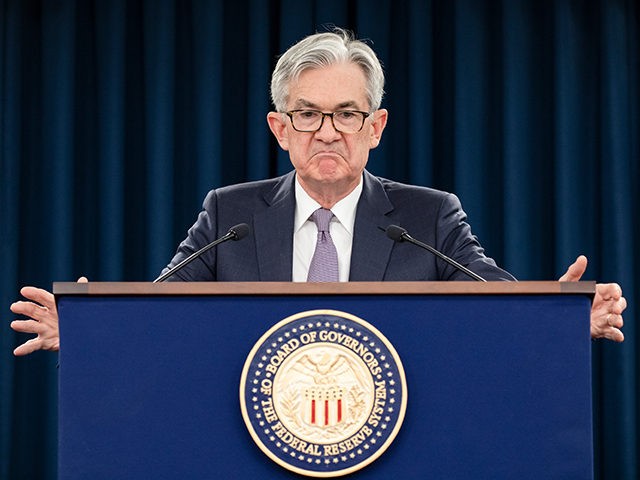We have been writing a lot lately about the Federal Reserve’s attempt to re-establish its credibility on inflation. Judging by this week’s price movement, the Fed has convinced the market that it will raise rates faster than anticipated but not that this will do very much for inflation in the short term.
Let’s start with the starkest evidence: the breakevens, which are the closest thing we have to a real-time market read of where inflation is going. Recall that breakeven rates are calculated by subtracting the yield of an inflation-protected bond from the yield of a nominal bond during the same time period. The five-year breakeven rate stood at 3.42 percent as the Fed’s March meeting got underway. On Friday, the five-year breakeven rate was 3.57 percent. In other words, the market’s view of inflation got worse since the last meeting. In fact, it now sits at a record high.
The stock market rose for the week, another sign that investors do not believe they are “fighting the Fed” in any serious manner by taking risk in equities. This was, in fact, the second consecutive weekly gain. Bond yields have risen, but this is ambiguous evidence. It certainly seems to imply that investors are not worried about inflation all that much (even though the yield curve keeps flattening). At a deeper level, the fact that the 10-year Treasury hit the highest yield since before the pandemic could mean that investors think the Fed will raise rates aggressively, or it could just be a sign that they expect lots of inflation and so are demanding a bigger return to compensate.
This is a not all too unfamiliar pattern with markets. The Fed’s credibility problem probably stretches back into the Trump era, when the Fed initially raised rates aggressively and without any evidence of inflation. After months of criticism from President Trump (which was widely loathed by the establishment media), the Fed admitted its error and turned to an average-inflation targeting regime that likely would have been appropriate through the Trump presidency. The Fed, in other words, was more or less admitting it followed the wrong policy for years.
The Fed then did it again by misidentifying inflation as transitory, inaccurately predicting that narrow inflation would stay narrow, and refusing to lift itself from the zero-interest floor until it was, as they say on Wall Street, “behind the curve.” Now the Fed is engaged in a pitched battle with markets. Every time the Fed tries to communicate a new level of dedication to fighting inflation, the market tests this by loosening financial conditions in the form of raising equity prices. So Fed officials need to double down on the rhetoric and likely take some actual policy actions by doing things like raising rates much more quickly than the market had anticipated.
But let’s not think this is all about financial markets. As the University of Michigan survey of consumer sentiment showed Friday, inflation is genuinely depressing main street’s confidence in the economy and in policymakers. Nearly one-third of households expect their financial condition to worsen over the next year due to rising prices, the largest share in records going back to the 1940s. Just 16 percent of people say they trust we have the right policies to deal with the problems, a sure sign of a loss of confidence in the Fed and the Biden administration. That will make fighting inflation harder because so much of inflation depends upon psychology and expectations.
Next week we will get the readout on this months’ jobs numbers. The market is expecting a climb down to a still-extremely high 450,000 from February’s astronomical 678,000. Given how strong jobless claims data has been, we wouldn’t be surprised to see a higher figure. There’s also been strong evidence of employment growth in the regional Fed surveys. The strength of the labor market may pull more workers off the sidelines, which could keep wages from exploding too high. Any numbers higher than consensus, however, could push up anxiety about a wage-price inflation spiral.
As we put it earlier, everyone has a job, but no one is happy to be working more while getting poorer.

COMMENTS
Please let us know if you're having issues with commenting.